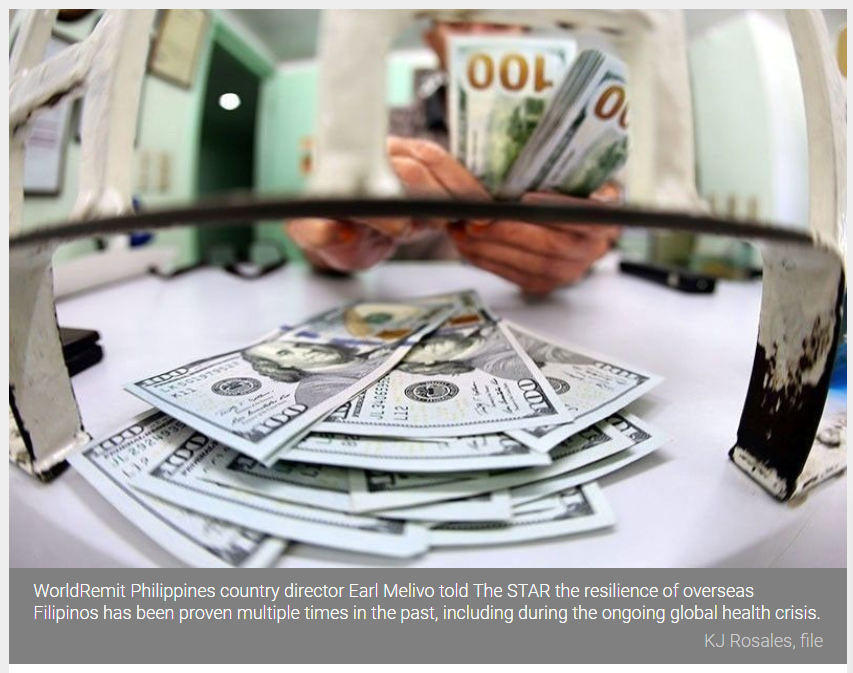Philippines: OFW remittances may rise by up to 7% this year
MANILA, Philippines — Cross-border digital payments services provider WorldRemit sees remittances from overseas Filipino workers (OFWs) bouncing back, with growth of six to seven percent this year after slumping by 0.8 percent last year due to displacements in host countries amid the COVID-19 pandemic.
WorldRemit Philippines country director Earl Melivo told The STAR the resilience of overseas Filipinos has been proven multiple times in the past, including during the ongoing global health crisis.
“The current pandemic even serves as another testament to that, from the early months of lockdowns in 2020 up to today despite various lockdowns and reintroductions of different restrictions in many of the host countries where OFWs are,” Melivo said.
WorldRemit’s projection is better than the four percent increase in personal and cash remittances projected by the Bangko Sentral ng Pilipinas (BSP) for 2021 and 2022.
Latest data from the central bank showed OFW remittances grew double digits for the second straight month in May amid the easing of travel restrictions in host countries.
Personal remittances, including all current transfers in cash or in kind by OFWs as well as other household-to-household transfers between Filipinos who have migrated abroad and their families in the Philippines, went up by 6.6 percent to $13.68 billion in the first five months of the year from $12.83 billion in the same period last year.
Likewise, cash remittances coursed through banks went up by 6.3 percent to $12.28 billion from $11.55 billion in the same period last year.
Melivo said remittances from the US including Guam, South Korea, Malaysia, Singapore, Taiwan and Canada would continue to grow this year, while volumes from host countries like Saudi Arabia, Germany, UK and New Zealand are now seeing some rebound in numbers.
Countries of concern include Japan, Australia, Italy, Kuwait, and the United Arab Emirates due to the continued decline in overall remittances, while Hong Kong and Qatar would continue to register further decline unless OFW redeployments are ramped up.
“Amidst new or renewed restrictions in many of the host countries, OFWs will simply continue to send money back home and where permitted, deployments of Filipinos will continue,” Melivo said.
Remittances have helped bolster the Philippine economy, helping recipient families improve their lives and regain financial autonomy. In addition to fulfilling their basic needs, remittances also help provide children with access to education.
Aside from the Christmas season, OFW remittances also peak during the start of the new school year.
The Philippines has always been the top receiving corridor for WorldRemit. Since 2011, it has established strategic partnerships allowing it to transfer to more than 70 banks and non-banks, including major Philippine mobile wallets and cash out through more than 29,000 locations nationwide.
Likewise, Melivo also downplayed the impact of the inclusion of the Philippines in the gray list of Paris-based dirty money watchdog Financial Action Task Force (FATF) last June 25 on OFW remittances.
“For OFW remittances, there shouldn’t be any negative effect that would entail decline in overall volumes. However, it is expected that heightened measures on scrutinizing customers by the money service businesses like WorldRemit and its Philippine payout partners,” Melivo said.
He said the BSP would continue to look closer on how to address their customer onboarding procedures particularly around know-your-customer (KYC) processes and anti-money laundering-related screenings and processes.
Source: https://www.philstar.com/business/2021/08/05/2117619/ofw-remittances-may-rise-7-year


 English
English




